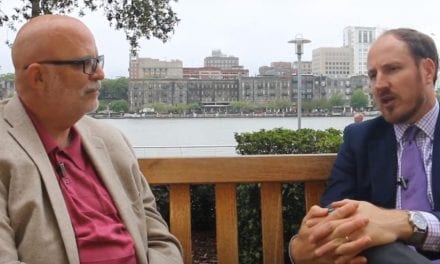A classic Anacin ad from the early days of TV showed a homemaker cooking at the stove when her Mother offered unwanted help by suggesting that she add salt to the dish.
Do you remember this ad and the cultural phenomenon it created?
By Guest Blogger: Art Carr A classic Anacin ad from the early days of TV showed a homemaker cooking at the stove when her Mother offered unwanted help by suggesting that she add salt to the dish.
Do you remember this ad and the cultural phenomenon it created?
That young homemaker of the 1960’s is now a resident in a senior living community and is still becoming “stressed out” because she is not being allowed to do as much for herself as she desires. Everyone around her – friends, family, AND the staff of the assisted or independent living community – believe that they are being helpful when they do everything for her. Their intentions are just as good as her Mother’s all those years ago – yet, the result is even worse. All her Mother did was give her a headache; well-meaning staff may be actually robbing her of the ability to care for herself! Independence is primarily a “state of mind” – a person’s desire and belief in their ability to perform a task or handle a situation under their own direction. They may choose to accept minimal assistance, but the CHOICE is theirs. In the book, “Successful Aging” based on the MacArthur Foundation Study of Successful Aging, the authors found that older men and women named remaining independent with the ability “to take care of themselves” as their primary goal.
Dependence is a Learned Trait
Beginning in infancy, we are taught to do things for ourselves: e.g. toileting, eating, walking, and dressing. As we mature, we are encouraged to become self-reliant, think and act independently and, as responsible adults, to “stand on our own two feet” and become productive in society. Yet, once we reach the normal retirement age (around 65), we enter “a time of life when nothing is expected”[ii] of us. This roleless role continues in old age, often couched in terms such as “You’ve ‘earned the right to leisure’[iii], so just sit back and let me take care of you.” While an admirable sentiment, this approach misses the key point that forced leisure is not what aging adults are seeking. Like all of us, they want the RIGHT to choose and make decisions for themselves about their care and lifestyle.
As we age, our care needs and dependence on others for assistance naturally increase, but the desire for independence and satisfaction of ego and other higher level needs [see Maslow’s Hierarchy of Needs[iv]] continues. However, the cumulative effect of family, friends and/or healthcare professionals telling the senior that they CAN’T or SHOULDN’T continue doing specific tasks (e.g. laundry, yard work, cooking) and/or caregivers taking over responsibility for these functions weighs on the individual. Ultimately, they’ll give in and become dependent on the caregiver – EVEN WHEN THEY COULD STILL DO IT THEMSELVES! To emphasize this point, consider what would happen to the development of a toddler if the parents continue to cut the child’s food at every meal? It’s fairly easy to recognize the problems this would cause the child when they go to school, but less clear that the same dependency can be learned by the elderly as their sense of purpose and productivity is removed by others with their misguided efforts to do “what’s best for them”. The attitude of the management and staff and the approach taken in a given situation is often more important than the actual action in preserving a resident’s independence and dignity. For instance, there is a fine line between a gentleman opening a door as a courtesy and a senior living employee treating every resident with a walker as disabled. Please go to the “Children Please …” category on the Progressive Retirement Lifestyles blog for more insights into specific examples and suggestions as to how management can PROMOTE INDEPENDENCE. Embracing these concepts will lead to higher resident satisfaction, longer lengths of stay and an environment that will be more appealing to higher functioning seniors.
Art Carr, CPA, is the Founder & President of Progressive Retirement Group, providing development, management & consulting services for the senior housing and care industry. In this role, he has created an evolutionary “Village” design of senior neighborhoods with integrated technology and the unique branded Progressive Retirement Lifestyles program of hospitality-based, resident-centered services to meet the differing needs of various senior clients. Previously, he was one of the top Regional Directors for industry leader Holiday Retirement. Contact Art through his blog Progressive Retirement










From LinkedIn Groups
The best ‘help’ you can give to ‘a senior’ is the same help you should strive to give anyone: facilitate them to continuing to be a giver to others, to reinforcing their productive, contributing selves.
By Michael K. Miller
Steve, Important discussion for sure. Yes, dependence IS a learned trait. I know Dr. Patrick Roden will be speaking on “Environmental Pressures” as a good thing in our presentation together in Chicago in March, at the ASA conference as a part of our joint presentation with Mr. Louis Tenenbaum and myself.
Thanks for sharing this, as it’s the epitome of “use it or lose it” for the mind and body…
Aaron
From LinkedIn Groups
This article raises an interesting point. My experience with many assisted living facilities is that the staff tend to treat the residents like helpless children, rather than encouraging them to continue to do everything they are capable of doing for themselves. Most people don’t want to give up their independence, so I think this is the wrong model. What do you think?
By Lorie Eber
From LinkedIn Groups
Good article Art! Autonomy, choice and empowerment are keys to success in building successful communities; or for that matter building strong organizations. Part of the problem is identified in the discussion question, “don’t give YOUR seniors.” As you know, many of us have a problem with the term ‘senior’ and putting ‘your’ in front of it makes it even more paternalist and pejorative.
By Richard Ambrosius
From LinkedIn Groups
With most facilities being short staffed the caregivers often don’t have the extra time it takes for the elder to complete the task independently….not right for sure, but that would be the reply I’d receive from the Aide when I confronted them about doing things the elder was completely capable of doing themselves. Now with more cuts in Medicare I’m not sure what the answer is going to be.
By Sharon Roos
From LinkedIn Groups
Supportive services need to be geared towards maintaining independence, and encouraging aging successfully at home.
By James Scott
From LinkedIn Groups
Great article Steve and thanks for sharing. Personally, I believe it has a lot to do with how you are raised and being a female in particular. Since I am of the “baby boomer” age— we raised our children to be independent and to take care of our parents. Sometimes it’s so much easier “to do” the task for someone then to “stand by” and monitor. As my Mom said to me once a became a mom, “once a mom, always a mom”! And I think those who chose any type of health career, they are apt to be “doers”.
By Barb Przybylowicz
Isn’t it interesting that parents of toddlers and young children can’t wait for the youngsters to do for themselves and become independent (and relieve the parents of the ‘burden’) whereas when the parents become elderly children and caregivers appear eager to ‘burden’ themselves doing for the elderly what they may be eager to do for themselves.